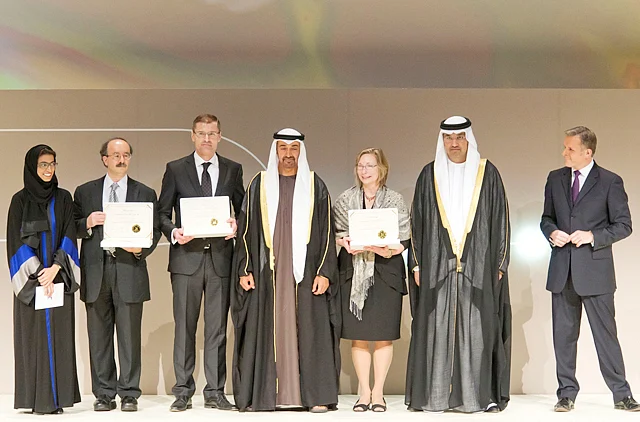Abu Dhabi focuses on new strategies
Abu Dhabi Vision 2030 aims sustainable urban planning and economic growth

Dubai: Last year's huge oil spill in the Gulf of Mexico brought the world's attention once again to the continued depletion of fossil fuels.
The constant quest to find new, sustainable, renewable forms of energy to power the planet continues apace as we seek new ways of improving energy efficiency and protecting our environment.
In 2007, the Emirate of Abu Dhabi launched the Abu Dhabi Vision 2030 to provide the emirate with the strategic environment that achieves sustainable urban planning and economic growth.
With a population expected to reach five million by 2030, the emirate is focused on creating a diversified economy to reduce its dependence on oil and building the necessary foundations and infrastructure that will support a sustainable society.
If proof was needed of the sweeping changes that are taking place in the emirate, then one need look no further than the 2011 World Future Energy Summit (WFES) which Abu Dhabi is hosting. Visitors to the event can see 17 of the pioneering projects on how to better conserve energy and drive sustainable development.
These 17 projects that the emirate's municipal system is showcasing - which comprises the DMA and the three regional municipal administrations: Abu Dhabi Municipality, Al Ain Municipality, and Western Region Municipality — undeniably illustrate just how much the emirate is changing to lessen its reliance on more traditional forms of energy.
Building codes
One step towards the emirate's energy conservation and sustainability targets has been the very recent introduction of a set of building codes by the Department of Municipal Affairs (DMA), the regulatory and legislative body of the emirate's municipal system.
The new building codes will unify building practices and create better, safer, greener buildings that are more cost-effective and meet safety standards. One of the new building codes likely to be of particular interest to WFES visitors is the International Energy Code, which sets out minimum standards for energy conservation that it is hoped will help the emirate meet all United Nations Green Building targets for extremely hot areas.
Another project being showcased at the event by the municipal system include the Mohammad Bin Zayed City Project which is setting the standard for building sustainable communities. Others are the introduction of more energy-efficient street lighting using solar energy and LED technology and the use of solar panels for lighting and providing air conditioning in bus shelters, among others.
Commenting on the municipal system's participation, Majid Ali Al Mansouri, chairman of the Department of Municipal Affairs, commented, "With the successful implementation of many local sustainability initiatives such as regulating mandatory use of energy efficient LED street-lighting, creating environmental health and safety management frameworks and introducing a unified set of building codes for the construction sector, the emirate of Abu Dhabi is leading by example with practical initiatives to reduce energy consumption and protect the environment in the Mena region."
Sign up for the Daily Briefing
Get the latest news and updates straight to your inbox
Network Links
GN StoreDownload our app
© Al Nisr Publishing LLC 2025. All rights reserved.